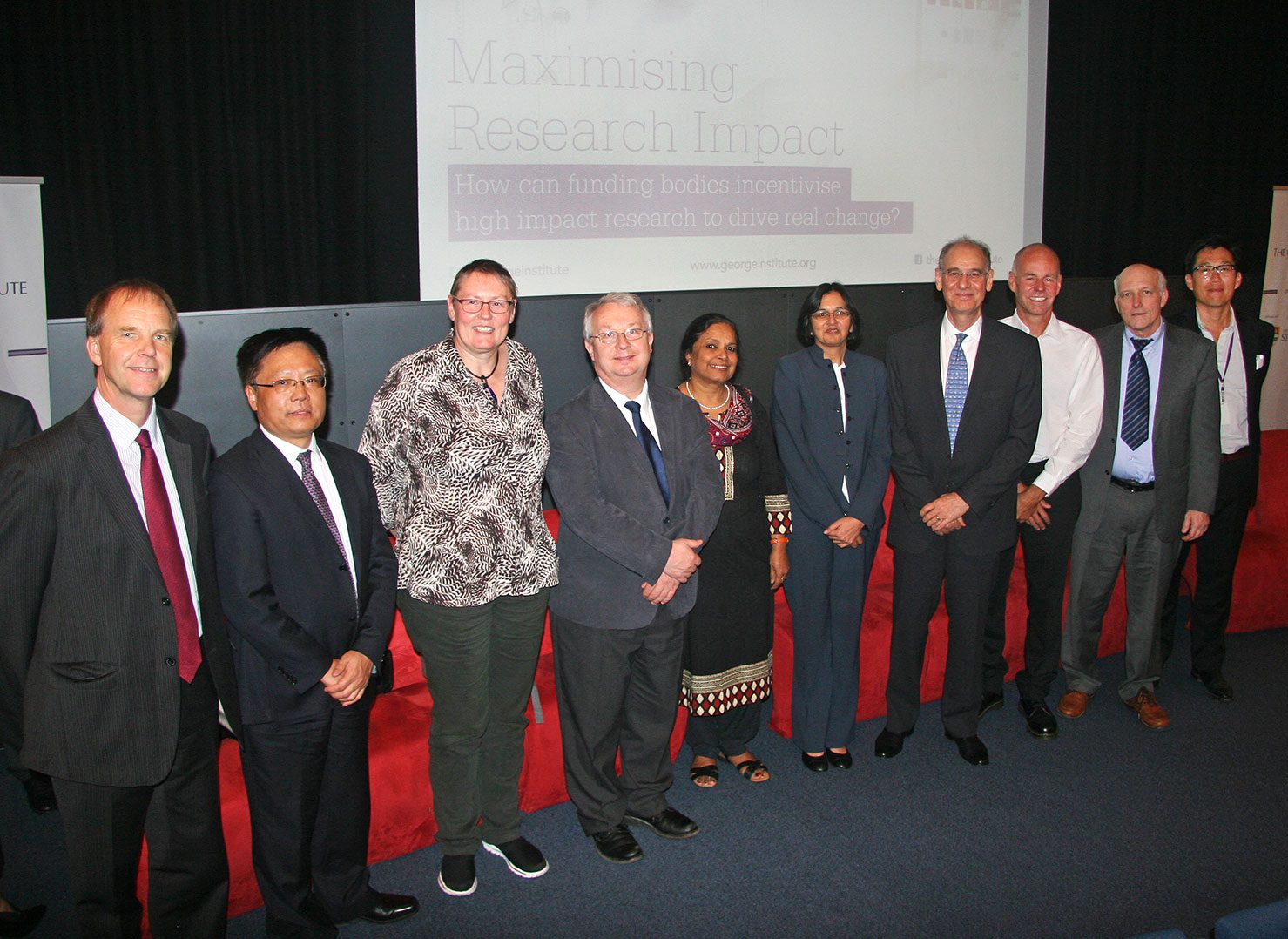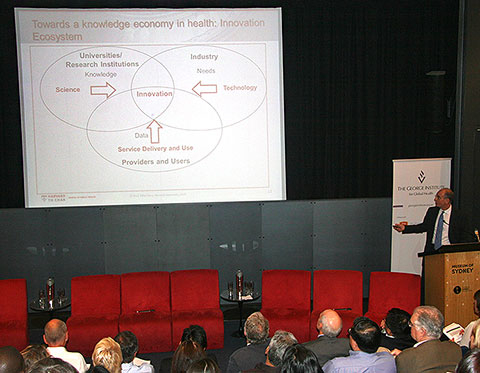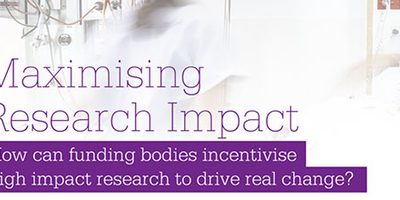
TGI gathers international experts for change making forum
In a major forum hosted by The George Institute for Global Health on Friday, key health sector thinkers, leaders and change makers from around the world gathered in Sydney to address maximising the impact of research on policy and practise for greater change.
The forum, which was hosted at the Museum of Sydney, included presentations from a cross section of health sector stakeholders, along with panel and audience Q & A.
Professor Anushka Patel, Chief Scientist at The George Institute, said the expertise that was brought together for the forum was invaluable for participants.
“Forums like these are essential to our work at The George Institute and gives an opportunity for key stakeholders to participate in an event where they can share candid information about how to maximise impact from investment into research.”
“We heard global perspectives on the need to reform many aspects of how funding agencies allocate funding, including the importance of balancing the need for fundamental research with that of research likely to yield outcomes of more immediate value to health systems.
“We also heard how ensuring pathways to impact are considered from the outset is crucial in determining eventual translation.”

Dr Rifat Atun presenting
Professor Bruce Robinson, Chair of the NHMRC Council and until last week, Dean of the University of Sydney Medical School, gave the opening presentation at the forum to provide insight into the NHMRC’s key collaborative funding schemes. In addition, Mr Mark Booth, First Assistant Secretary of the Health Systems Policy Division, Strategic Policy and Innovation Group at the Department of Health, further discussed new government schemes aiming to increase research impact, including the Medical Research Futures Fund.
Professor Rifat Atun from the Harvard School of Public Health spoke about the importance of funders providing an environment for open innovation systems, bringing together science, technology and service delivery, as well as re-shaping the risk reward calculus in funding decisions with an emphasis translational outcomes.
Providing a perspective from a low- middle-income country, Ms Sujatha Rao, former Secretary for Health for the Government of India, emphasised the unintended consequences of research agendas that are entirely donor-driven, without appropriate engagement of the end users within relatively weak health systems.
Professor Martin McKee, Professor of European Public Health at the London School of Hygiene and Tropical Medicine, spoke to the importance of having a diverse strategy to achieving high impact research, and having an understanding that knowledge transfer is a social process. As a consequence, Professor McKee expressed the importance of having networks with research users, valuing policy-relevant outputs and supporting the training of early career researchers in policy engagement, media relations and cognitive biases.
Dr Michael Engelgau from National Institutes of Health in the US highlighted the increasing emphasis that this agency is placing on late phase implementation research, with the recognition of context being crucial in influencing impact.
The panel discussion, chaired by The George Institute’s Professor Bruce Neal, had Professor Barbara McPake, Professor Qingyue Meng and Professor Stephen Jan joining presenters to provide additional perspectives including; the importance of measuring the impact of research on policy and practice and in doing so, recognising that the process is often complex and long-term; the private sector as a stakeholder in the translation of research into practice and thus a potential sponsor; and the importance of promoting translation through research that takes into account the health systems context in which it is carried out.
Panel members included:
- Professor Bruce Robinson: Chair of the NHMRC Council
- Dr Rifat Atun: Director of Global Health Systems Cluster at Harvard School of Public Health
- Professor Martin McKee: Professor of European Public Health at the London School of Hygiene and Tropical Medicine
- Dr Michael M. Engelgau: Deputy Director of the Center for Translation Research and Implementation Science at the National Heart, Lung, and Blood Institute at the US Department of Health and Human Services.
- Ms Sujatha Rao: Former Secretary of Health, Government of India
- Professor Meng Qingyue: Professor in Health Economics, Peking University; Director, Key Lab for Health Economics and Policy Studies, China’s Ministry of Health
- Professor Barbara McPake: Director, Nossal Institute for Global Health
- Professor Stephen Jan: Head of Health Economics Program and Senior Health Economist at The George Institute for Global Health
- Mr Mark Booth: First Assistant Secretary, Health Systems Policy Division, Strategic Policy and Innovation Group, Department of Health





